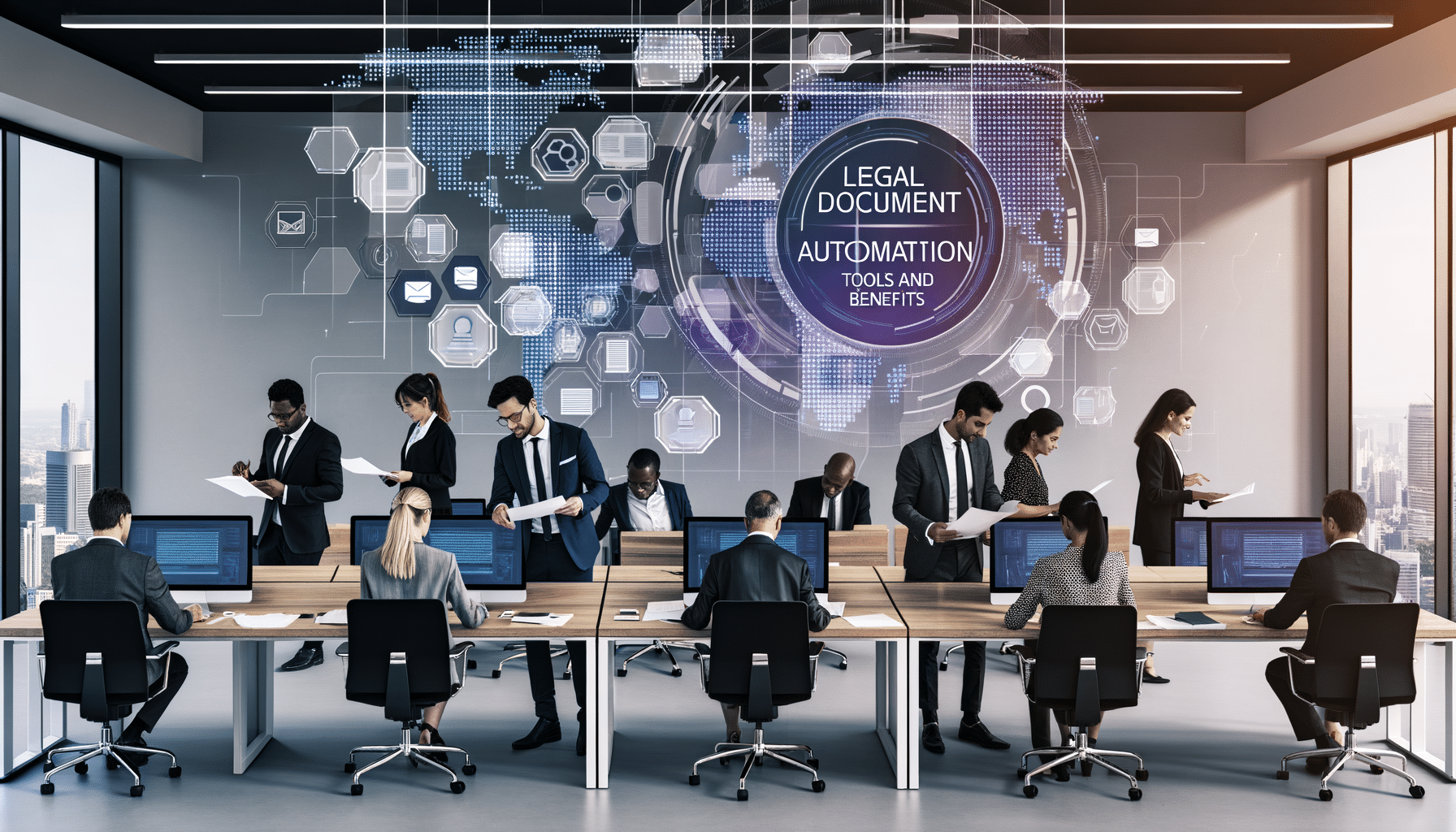- Technology Integration
- October 13, 2024
Legal Document Automation: Tools and Benefits

Unleashing the Power of Legal Document Automation
The dawn of digital transformation has touched every corner of modern business, but nowhere is its impact felt more keenly than in the domain of legal document management. If you’re feeling bogged down by mountains of paperwork or suffocating under complex compliance protocols, you’re not alone. There is a significant resolution at your fingertips: legal document automation.
Why Automate Legal Documents?
In the realm of law and compliance, the stakes are high. Mistakes can lead to regulatory breaches, financial losses, and even reputational damage. Here’s where automating legal documents becomes a game-changer:
- Efficiency: Automation significantly reduces the time spent on routine document preparation and management, allowing your team to focus on strategic, high-value tasks.
- Accuracy: Automated systems reduce the risk of human error, ensuring that your documents meet legal standards and are free of inconsistencies.
- Consistency: With standardized templates and workflows, you ensure uniformity across legal documents, enhancing compliance and minimizing risks.
- Accessibility: Leveraging cloud-based platforms ensures that documents are easily accessible, securely stored, and retrievable from anywhere, anytime.
Exploring the Tools of Legal Document Automation
To truly harness the power of legal document automation, you need the right set of tools. Here’s a look at what technology has to offer:
1. Document Management Systems (DMS)
A DMS serves as the backbone of automation. By providing a single platform for storing, organizing, and sharing files, records management becomes streamlined and secure.
2. AI-Powered Drafting Solutions
Artificial intelligence can assist in drafting complex legal documents by employing algorithms that understand context, thereby generating precise clauses and provisions.
3. Contract Lifecycle Management (CLM) Software
With CLM software, automate contract generation, execution, renewal, and compliance management—facilitating greater efficiency and control over end-to-end workflows.
4. E-signature Platforms
E-signature tools expedite the signing process by allowing stakeholders to authenticate documents digitally, cutting down on logistical delays.
Benefits Beyond Efficiency
While efficiency and accuracy are paramount, the benefits of automating legal document processes extend further:
- Cost Reduction: Automating reduces reliance on manual processes, potentially lowering the headcount required for administrative tasks and saving your organization money.
- Enhanced Client Satisfaction: Faster response times and improved accuracy elevate the client experience, strengthening relationships and brand credibility.
- Improved Compliance: Automated systems are often equipped to keep pace with changing regulations, ensuring your documents remain compliant without additional manual effort.
- Scalability: Automation easily scales with your growth, adapting to your increasing needs without the complexities tied to manual processes.
A Case in Point: RecordsKeeper.AI
Given my experience and passion in this field, I’ve channelled our resources at RecordsKeeper.AI to develop features that embody the essence of legal document automation. Our solutions bring AI-driven classification and retrieval capabilities to the forefront, coupled with immutable blockchain record-keeping, making us a trusted partner for those navigating the challenges of record management. The rigorous compliance checks we facilitate ensure that our platform remains ever-ready to meet evolving legal demands.
Conclusion
Legal document automation is no longer a luxury—and with platforms like RecordsKeeper.AI, it becomes a strategic asset. By embracing these tools, organizations not only drive operational efficiency but also position themselves as leaders in their respective industries. I invite legal, finance, and compliance professionals to explore these innovations and to stay engaged with my insights as we navigate the evolving landscape of technology integration in legal practices.
For more information and regular updates, follow my journey and our team’s work at RecordsKeeper.AI. Let’s modernize how records are managed and make strides toward a more efficient future.
Toshendra Sharma is the visionary founder and CEO of RecordsKeeper.AI, spearheading the fusion of AI and blockchain to redefine enterprise record management. With a groundbreaking approach to solving complex business challenges, Toshendra combines deep expertise in blockchain and artificial intelligence with an acute understanding of enterprise compliance and security needs.
Related Posts

Legal Challenges in Adopting AI-Powered Evidence Analysis
Understand the legal hurdles of integrating AI in analyzing legal evidence and case materials.
- November 1, 2024

Exploring the Role of Artificial Intelligence in Legal Filing
Learn how AI tools simplify and automate legal filing processes.
- September 3, 2024
Archives
- December 2024
- November 2024
- October 2024
- September 2024
- August 2024
- July 2024
- June 2024
- May 2024
- April 2024
- March 2024
- February 2024
- January 2024
- December 2023
- November 2023
- October 2023
- September 2023
- August 2023
- July 2023
- June 2023
- May 2023
- April 2023
- March 2023
- February 2023
- January 2023
- December 2022
- November 2022
- October 2022
- September 2022
- March 2019
Want to get more content like this?
Signup to directly get this type of content to your inbox!!
Latest Post
Organizing External Auditor Access
- December 22, 2024
Document Control in Manufacturing Plants
- December 21, 2024
Handling Rush Financial Report Requests
- December 20, 2024
Managing Record Access After Staff Changes
- December 19, 2024





